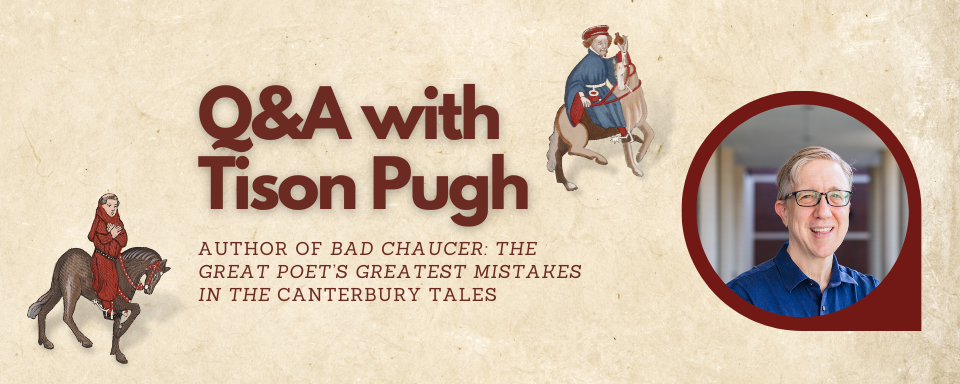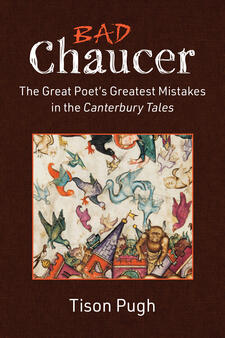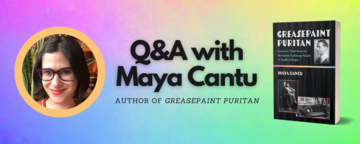Q&A with Bad Chaucer Author Tison Pugh

This guest author post is a Q&A with Tison Pugh, author of the new book Bad Chaucer: The Great Poet’s Greatest Mistakes in the Canterbury Tales, from the University of Michigan Press. The book is available in hardcover and accessible ebook.
In your introduction, you write, “Bad Chaucer, taking an errant cue from Shakespeare’s Mark Antony, comes neither to praise the author and his literature nor to bury them.” What can we learn by scrutinizing the “badness” present in the Canterbury Tales?
It’s always a good idea to remember that no one—even the greatest authors of world literature—is or was perfect. By studying the bad parts of an unquestionably great author’s body of work, we obtain a fuller sense of the humanity behind it and of the virtually insurmountable obstacles in creating memorable fiction. “Greatness” is a heavy load for an author to bear (although I suspect many would not object to the burden). At the same time, a reader’s eye for authorial badness suggests our openness to a range of pleasures to be found in literature, from the sanctioned to the unsanctioned, from the straight to the skewed.
In the book you discuss different blunders, muddles, and shortcomings that can make a tale “bad” — including lists of trees, crude jokes, outdated perspectives, and characters acting against their characterizations. Do you have a favorite example of the “badness” in the Canterbury Tales?
Yes, I certainly do! It is the epic catalog of trees in Chaucer’s Knight’s Tale. As the first of the Canterbury Tales, The Knight’s Tale tells a deeply engrossing story of love and betrayal, war and reconciliation, but the narrator interrupts it first by promising to skip this epic catalog of trees, then by recording twenty-one separate species of trees, and lastly by reiterating that he will not address what he has already addressed. Some Chaucer scholars have gone to great lengths in defending this indefensibly boring list, and I readily recognize the significance of catalogs to the epic tradition. In the end, however, Chaucer’s catalog only serves to interrupt an otherwise engrossing tale. It’s bad writing, and I see no harm in saying that.
My runner-up is the Squire’s Tale, one of Chaucer’s forays in intentional badness, one that is so purposefully bad that it circles back to greatness.
In addition to being the author of the Canterbury Tales, Chaucer sometimes has a role in his writing as a narrator or even a character. How does this add to or confuse our understanding of errors in the narrative?
Chaucer’s overzealous defenders, his most ardent fanboys and fangirls for whom he can do wrong, often assign any infelicities in his fiction to his characters in the Canterbury Tales. That is to say, in the above example of the catalog of trees, this rhetorical flub should nonetheless still reflect Chaucer’s literary genius because it complicates our understanding of his Knight who is telling the tale. One of our leading Chaucerians, Helen Cooper, asserts of this interpretive fallacy: “Assigning the weakness of a tale to the weakness of the teller is a widespread, and comfortable, critical practice, but raises the awkward question of how many bad tales the complete work can hold.” Bad Chaucer takes Cooper’s contention as a starting point for reappraising the Canterbury Tales as a whole.
What surprised you the most when writing the book?
Frankly, that it was indeed publishable. The University of Michigan Press rightly insists on a rigorous peer-review process for its publications, and I feared that the Chaucerians reviewing my book would accuse me of sacrilege, out me as a heretic, and boo me at conferences. I am lucky—and grateful—that the peer reviewers found reasons to support Bad Chaucer, even as they offered candid suggestions for improving it.
What do you hope readers will take away from Bad Chaucer?
I hope readers will attune themselves to the pleasures of badness, and enjoy finding the wrinkles in the most finely weaved fabrics, for we can love literature as much for its faults as for its ostensible flawlessness. When we knock our idols off their pedestals, we don’t need to break them.



